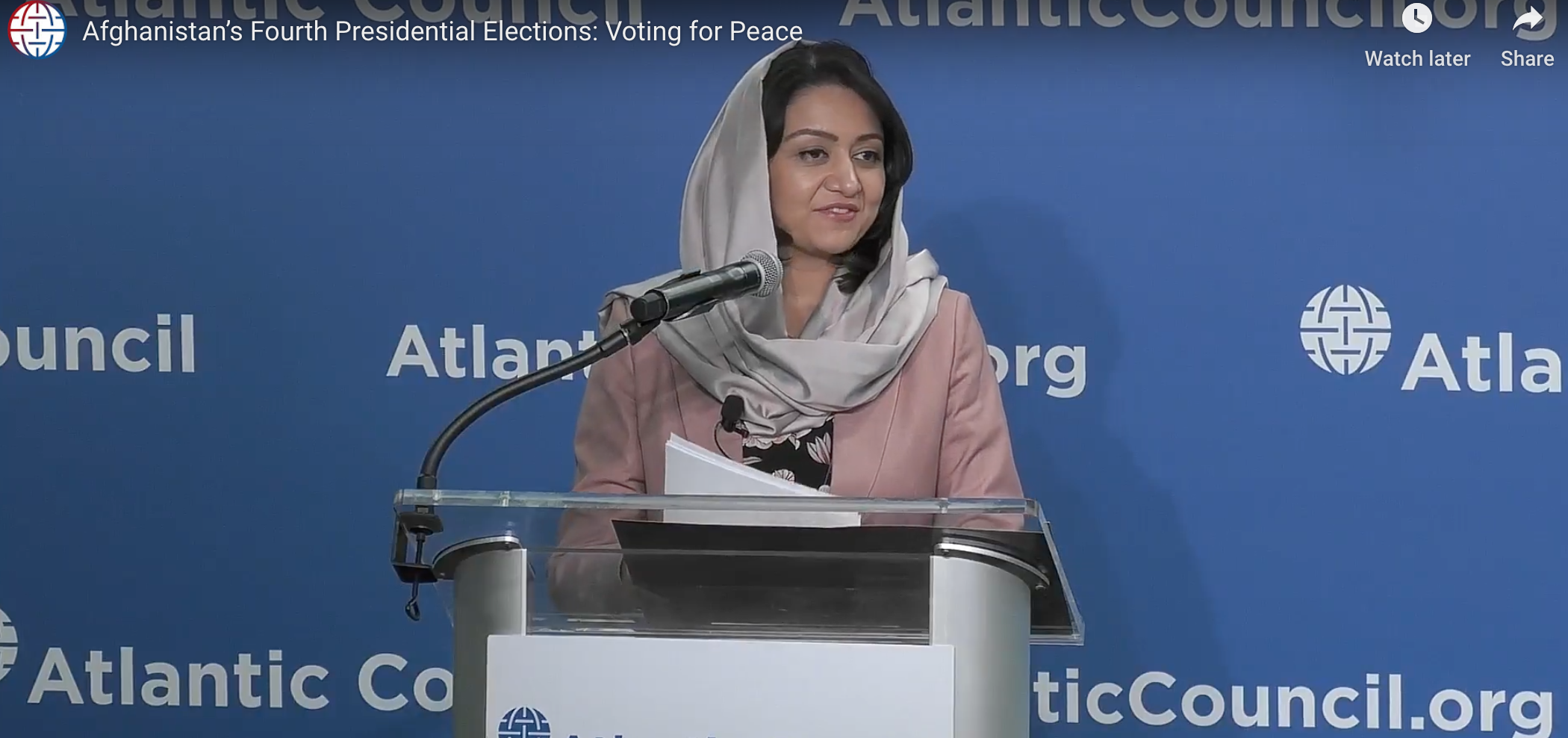
Kabul’s ambassador to Washington said “passing statements” about U.S. withdrawal or peace talks with the Taliban made in American political campaigns are “not helpful” in setting Afghanistan on the pathway to a future as functioning democratic republic.
Speaking Wednesday at the Atlantic Council in Washington, D.C., Roya Rahmani said in answer to several questions, “we want the United States to look at us … as partners over the last 18 years.”
The major change: “now it is not the Americans fighting” the Taliban or the Islamic State in Afghanistan, she said. Rather, the Afghan security forces are in the lead militarily, as part of a strategy developed several years ago in coordination the United States and NATO.
“We could talk about this as a success story.” The ambassador added Afghanistan “is an important part of your foreign policy. We have a rapidly changing environment” inside Afghanistan that includes shifting mindsets over the role of women in society.
Rahmani was speaking against the backdrop of the sudden announcement of the American withdrawal of forces from northeast Syria, where they had been working alongside the Syrian Democratic Front against the Islamic State. That sudden withdrawal raised new questions about U.S. commitment to stay in Afghanistan. Even before the U.S. forces pulled out, Turkish aircraft and artillery struck targets in the northern part of Syria, and Turkish ground forces pushed forward to establish a buffer zone where up to 1 million refugees would be relocated.
Ahead of an Afghan election last month, President Donald Trump abruptly canceled a secret Camp David meeting where members of the Taliban and the Afghan government and the administration would work out the final details of a peace agreement ending the American military involvement in Afghanistan.
Rahmani cited the success of the 70,000 Afghan security forces who ensured the safety of voters in the Sept. 28 presidential election as another example of the difference this year from previous national votes, when the United States and coalition forces played a major role in keeping the peace on voting day.
The strong Afghan security presence and the relatively few incidents of violence at the polls “were an important milestone in counterterrorism strategy” going forward. In addition to the security forces, she said 200,000 Afghans worked the polls; more than 10,000 of them were women. “This is a test of how far our country has evolved.”
She viewed the election, where preliminary results have been delayed at least until next week for a number of technical reasons, as “cement[ing] our commitment to democracy,” and that needs to be recognized in Washington.
She added, “Afghans risked their lives to go to the polls”
Rahmani said Afghans are “choosing democracy over the other possibilities” presented by the Taliban or Islamic State.
Although peace talks among the leading parties appear to be at a standstill, and the turnout of 3 million Afghans for the presidential election has been called low, she stressed, “the United States needs a strong partner in Afghanistan.” No matter who is elected president – incumbent Ashraf Ghani or the country’s chief executive, Abdullah Abdullah – “they share your goals” of wanting a stable nation, she added.
“The military cannot provide a full solution” to achieving that goal and ensuring the progress made towards a democracy shared by all is achieved.





